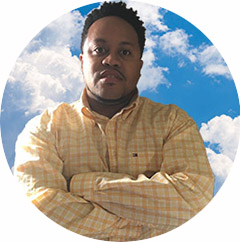What is the big deal about the Moors anyways?
Check out these historical facts and see for yourself.
BY NICK SNELLING
One of the curiosities of Spain is the seeming denial by the Spanish of the past existence of the Moors in their country. Certainly, much is made of the ‘heroic’ Christian Reconquista, but rarely is the Moorish invasion of Spain looked upon as having provided any intrinsic benefit. In fact, apart from a few scintillating buildings, such as the Alhambra and the Cordoba Mezquita, it would be easy to imagine that, during their 780 years presence, the Moors contributed nothing of consequence to Spain.
In fact, the Moors had a profound influence not just upon Spain but the whole of Western Europe. Indeed, it has been said that they laid the foundations of the Renaissance that brought Europe out of the intellectual and physical gloom of the Middle Ages.
In the 10 Century Cordoba, for example, was not just the capital of Al Andalus (Moorish Spain) but also one of the most important cities in the world, rivaling Baghdad and Constantinople. It boasted a population of 500,000 (200,000 more than now) and had street lighting, fifty hospitals (with running water!), three hundred public baths, five hundred mosques and seventy libraries – one of which held some 500,000 books. All of this, at a time when London had a largely illiterate population of around 20,000 and had forgotten the technical advances of the Romans some 600 hundred years beforehand.
More importantly, the Moors brought enormous learning to Spain which, over the coming centuries, would percolate through to the rest of Europe. In fact, it was the intellectual achievements of the Moors that were to have a lasting effect, well beyond their more prosaic contributions towards construction, irrigation systems and agriculture. Indeed three of the greatest thinkers of the Middle Ages emerged from Moorish Spain: Ibn Rushd (Averroes), Ibn Arabi and the Jew Maimonides.
Strange though it may seem now, Islam actively promoted learning and scholarship during its Golden Age (750 – 1258) with rulers across the Arab world vying with each other to develop and patronise great centres of learning. This was totally consistent with the teaching of the founder of Islam, Mohammad, who believed that ‘the scholar’s ink is holier than the martyr’s blood’ and that ‘seeking knowledge is required of every Muslim’.
So dynamic was Islam during its Golden Age, that Arabic became both the international language of scholarship and the language into which original, and often ancient and nearly forgotten, manuscripts in Greek, Latin, ancient Egyptian and Chinese were translated. The vast body of work created was of the first importance, as it preserved ideas and thoughts from previous ages and amalgamated them into a form capable of rigorous study. In turn, this nurtured an environment that generated great intellectuals, who were able to expand upon a range of vital matters from philosophy to astronomy through to medicine, the development of higher mathematics, navigation and dramatically new farming techniques.
Check out these historical facts and see for yourself.
BY NICK SNELLING
One of the curiosities of Spain is the seeming denial by the Spanish of the past existence of the Moors in their country. Certainly, much is made of the ‘heroic’ Christian Reconquista, but rarely is the Moorish invasion of Spain looked upon as having provided any intrinsic benefit. In fact, apart from a few scintillating buildings, such as the Alhambra and the Cordoba Mezquita, it would be easy to imagine that, during their 780 years presence, the Moors contributed nothing of consequence to Spain.
In fact, the Moors had a profound influence not just upon Spain but the whole of Western Europe. Indeed, it has been said that they laid the foundations of the Renaissance that brought Europe out of the intellectual and physical gloom of the Middle Ages.
In the 10 Century Cordoba, for example, was not just the capital of Al Andalus (Moorish Spain) but also one of the most important cities in the world, rivaling Baghdad and Constantinople. It boasted a population of 500,000 (200,000 more than now) and had street lighting, fifty hospitals (with running water!), three hundred public baths, five hundred mosques and seventy libraries – one of which held some 500,000 books. All of this, at a time when London had a largely illiterate population of around 20,000 and had forgotten the technical advances of the Romans some 600 hundred years beforehand.
More importantly, the Moors brought enormous learning to Spain which, over the coming centuries, would percolate through to the rest of Europe. In fact, it was the intellectual achievements of the Moors that were to have a lasting effect, well beyond their more prosaic contributions towards construction, irrigation systems and agriculture. Indeed three of the greatest thinkers of the Middle Ages emerged from Moorish Spain: Ibn Rushd (Averroes), Ibn Arabi and the Jew Maimonides.
Strange though it may seem now, Islam actively promoted learning and scholarship during its Golden Age (750 – 1258) with rulers across the Arab world vying with each other to develop and patronise great centres of learning. This was totally consistent with the teaching of the founder of Islam, Mohammad, who believed that ‘the scholar’s ink is holier than the martyr’s blood’ and that ‘seeking knowledge is required of every Muslim’.
So dynamic was Islam during its Golden Age, that Arabic became both the international language of scholarship and the language into which original, and often ancient and nearly forgotten, manuscripts in Greek, Latin, ancient Egyptian and Chinese were translated. The vast body of work created was of the first importance, as it preserved ideas and thoughts from previous ages and amalgamated them into a form capable of rigorous study. In turn, this nurtured an environment that generated great intellectuals, who were able to expand upon a range of vital matters from philosophy to astronomy through to medicine, the development of higher mathematics, navigation and dramatically new farming techniques.










